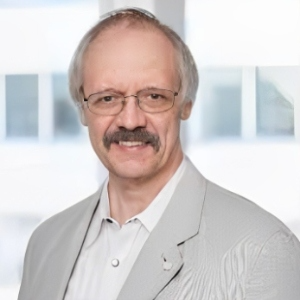Title : Effects of neuronavigated TPS: A novel tool of Non Invasive Brain Stimulation (NIBS)
Abstract:
Treatments of patients with severe therapy-resistant dementia and depressive disorders repeatedly pose enormous challenges in psychiatry and neurology. Transcranial pulse stimulation (TPS) as a new non-invasive therapy method could represent a new alternative to standard treatments. In contrast to ultrasound stimulation (tFUS) TPS uses shock waves. These shock waves allow an application to superficial brain structures as well as into areas deep in the brain without the induction of any thermal side effects. The stimulation of the target areas is MRI-navigated with a similar precision as in stereotactical procedures. TPS is currently approved for the treatment of Alzheimer's disease. Since AD patients repeatedly reported significant improvements of their mood, a healing attempt was carried out in patients with a severe therapy-resistant depression. An 81-year-old inpatient suffered from a major depressive disorder (lasting for longer than 18 months). All pharmacological approaches with different antidepressants (including ketamine) also in combination treatment and adjuvant therapy did not improve the status of the patient. ECT also did not lead to any positive change. The TPS-treatment was performed as a healing attempt. The patient received bilateral stimulation of the nucleus accumbens (the “reward center” of the brain) and the frontodorsal cortex (bilaterally 3,000 pulses per session, 0.2 mJ/mm2 per pulse, frequency 4 Hz). The navigated stimulation was carried out over a period of 2 weeks (with 3 sessions per week) by a Neurolith apparatus (Storz Medical, Switzerland). In addition to the clinical assessment of depressive symptoms, standard tests with a TFDD and CERAD were carried out. The patient was examined and tested before TPS stimulation as well as 2 and 6 weeks later. A dementia syndrome was not present in the patient. TPS stimulation led to an exceptional significant improvement in mood, which was also reflected in the TFDD (18/20 to 6/20). This improvement persisted for over 6 weeks. Side effects were not reported by the patient. This case shows that MRI-navigated TPS can be considered as an alternative method for therapy-resistant major depression. To determine the exact mechanisms of action of TPS further investigation is needed. In a rodent model it could be shown that TPS induced an increase of nitric oxide (NO)-levels. Both, the release of trophic factors and a temporarily opened blood-brain-barrier (BBB), seem to play a critical role. Thus a transient opening of the BBB might help to potentiate effects of administered pharmaceuticals contributing to an improvement of brain function. In summary TPS is a very promising option as an adjunctive therapy to a state-of-the-art treatment which may achieve a reduction of depressive symptoms as well as an improvement of cognitive functions and quality of life.
Audience Take Away Notes:
- Presentation of a new effective method of non-invasive brain stimulation with very low side effects
- Beside case reports of patients with a severe depression collected data of more than 50 patients with of Alzheimer’s Disease treated with TPS will be included. The ratio of positive effects and observed negative side effects will be analysed
- Discussion of the working mechanism(s) of TPS




